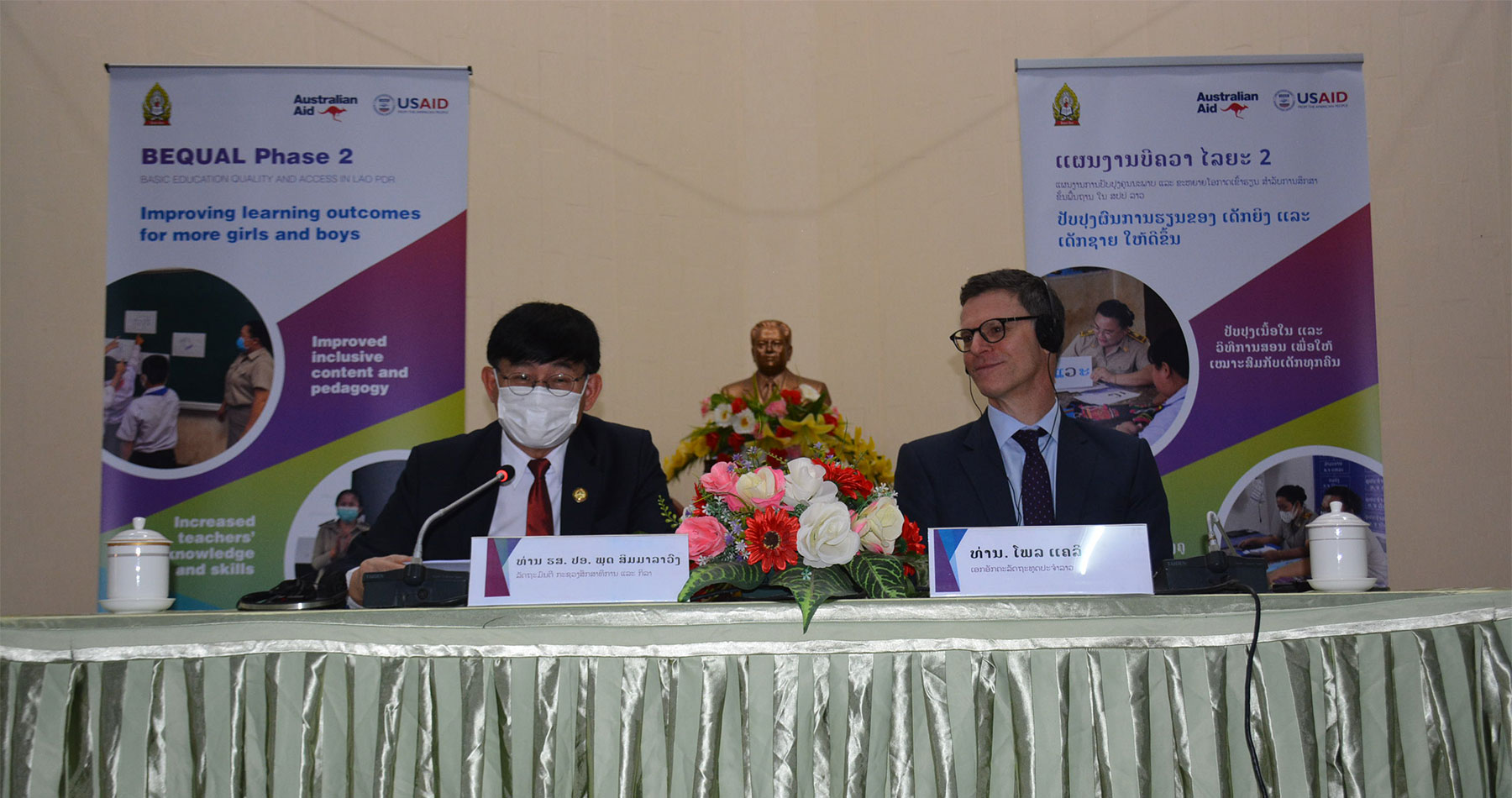
Minister of Education and Sports and the Australian Ambassador gave the opening remarks
On the occasion of the International Day of People with Disability, MoES and Australia organized a two-day workshop on understanding disability and promoting child protection and safeguarding best practices
The International Day of People with Disability (IDPWD) is held on 3 December each year. It is a United Nations observed day celebrated internationally. IDPWD aims to increase public awareness, understanding and acceptance of people with disabilities and celebrate their achievements and contributions.
The theme for 2023 is ‘United in action to rescue and achieve the sustainable development goals for, with and by persons with disabilities’.
According to the 2017 Lao Social Indicator Survey II, 2% of children aged 2 to 4 have a functional difficulty in at least one domain (seeing, hearing, walking, fine motor skills, communicating, learning, playing, controlling behaviors). This percentage increases with remoteness and poverty. Children with severe disabilities are usually kept at home and are often ‘hidden’ to the outside world, due to stigma and discrimination. Factors such as gender, ethnicity, poverty, distance to school or physical access to classrooms and bathroom facilities constitute other barriers to the education of children with disabilities in Lao PDR.
The COVID-19 pandemic eroded education and development gains across the region with the biggest impacts felt by the most vulnerable – particularly women and girls, people living with a disability and those in rural and remote areas.
Recognizing these challenges and the importance of mobilizing support for inclusive education, the Ministry of Education and Sports of Lao PDR (MoES) and the Australian Government, through the BEQUAL program, organized a two-day training workshop on 5th and 6th December at the Research Institute for Educational Sciences. The event was opened by H.E. Assoc. Prof. Dr. Phout Simmalavong, Minister of Education and Sports and H.E. Paul Kelly, Ambassador of Australia to Lao PDR.
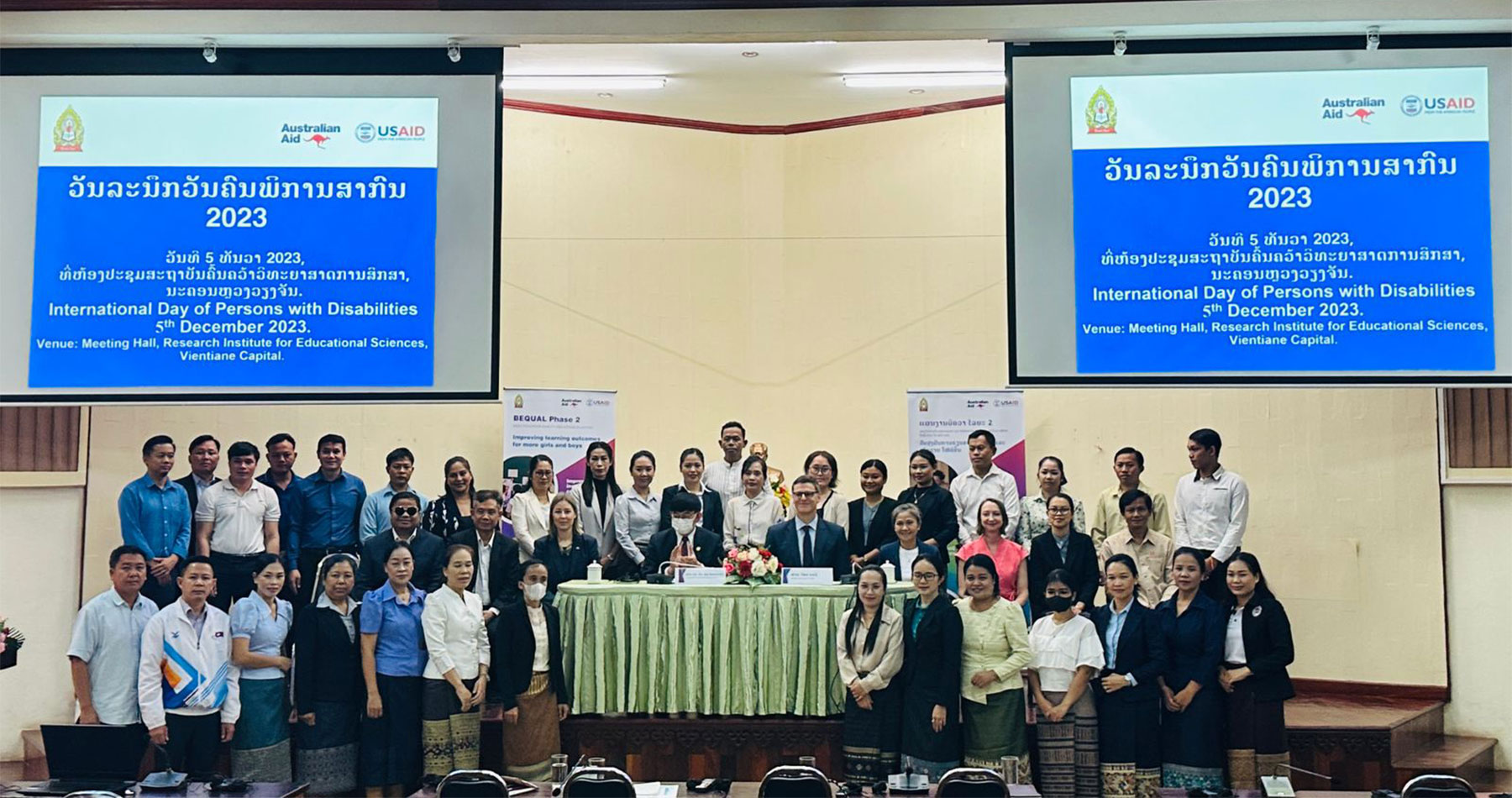
Trainees with the Minister of Education and Sports and the Australian Ambassador
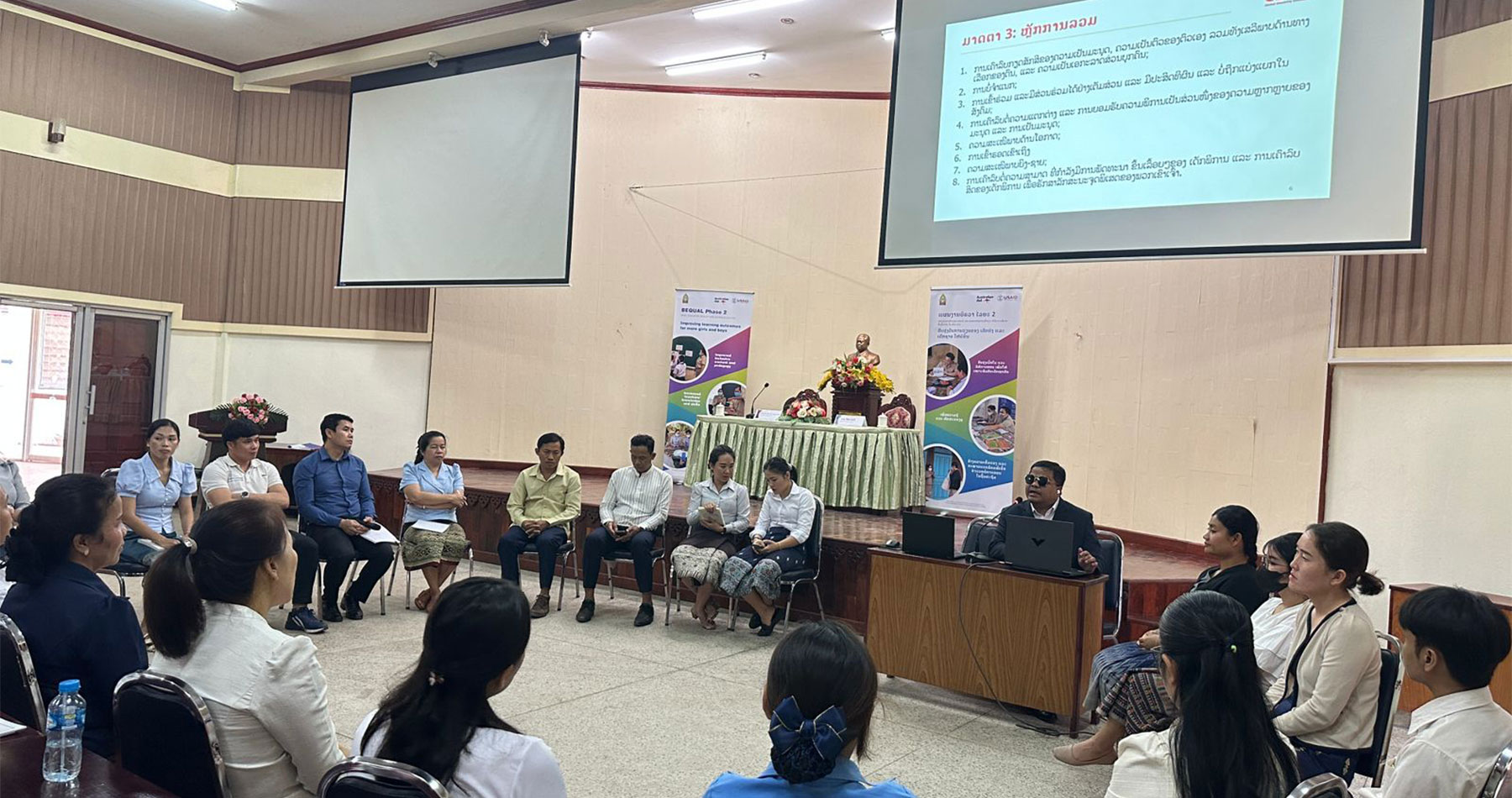
Understanding disabilities – presented by the Director of Disability Services Center
“This event demonstrates a renewed joint commitment; the Ministry of Education will continue to work in partnership with Australia on improving access to quality education for children with disabilities” said Dr. Phout Simmalavong in his opening remarks.
H.E. Paul Kelly added “Disability inclusion is a core priority for the Australian Government and a cross-cutting issue in our development assistance program. Australia is committed to supporting the Ministry of Education, through the BEQUAL program, provide quality primary education for all children in Laos, no matter their abilities or their gender.”
The two-day training was designed to improve understanding, knowledge, and skills in relation to inclusive education for 35 MoES staff who form MoES’ core Gender Training team. The team have been drawn from 16 different departments and 2 institutes of the Ministry. The event will also involve development partners and representatives from disabled people’s organisations who will share their insights into how children with a disability can be supported to thrive in the education system.
Following opening remarks by H.E. Assoc. Prof. Dr. Phout Simmalavong, Minister of Education and Sports and H.E. Paul Kelly participants toured an exhibition of teaching and learning resources that have been produced with the support of the BEQUAL Program, development partners, and disabled people’s organisations. The exhibition was followed by focused training for MoES’ Gender Trainers on supporting learners with disabilities through policy level action. The final activity of the event was a panel discussion featuring guest speakers with firsthand experience of supporting learners with disabilities.
The objective of the training was to ensure that relevant staff from MOES have a deep understanding about the challenges faced by children with disabilities in the education system, and how to ensure child protection and safeguarding for all children in school.
The workshop will also provide MoES’ Gender Trainers with a network of specialists and organizations they can go to for advice.
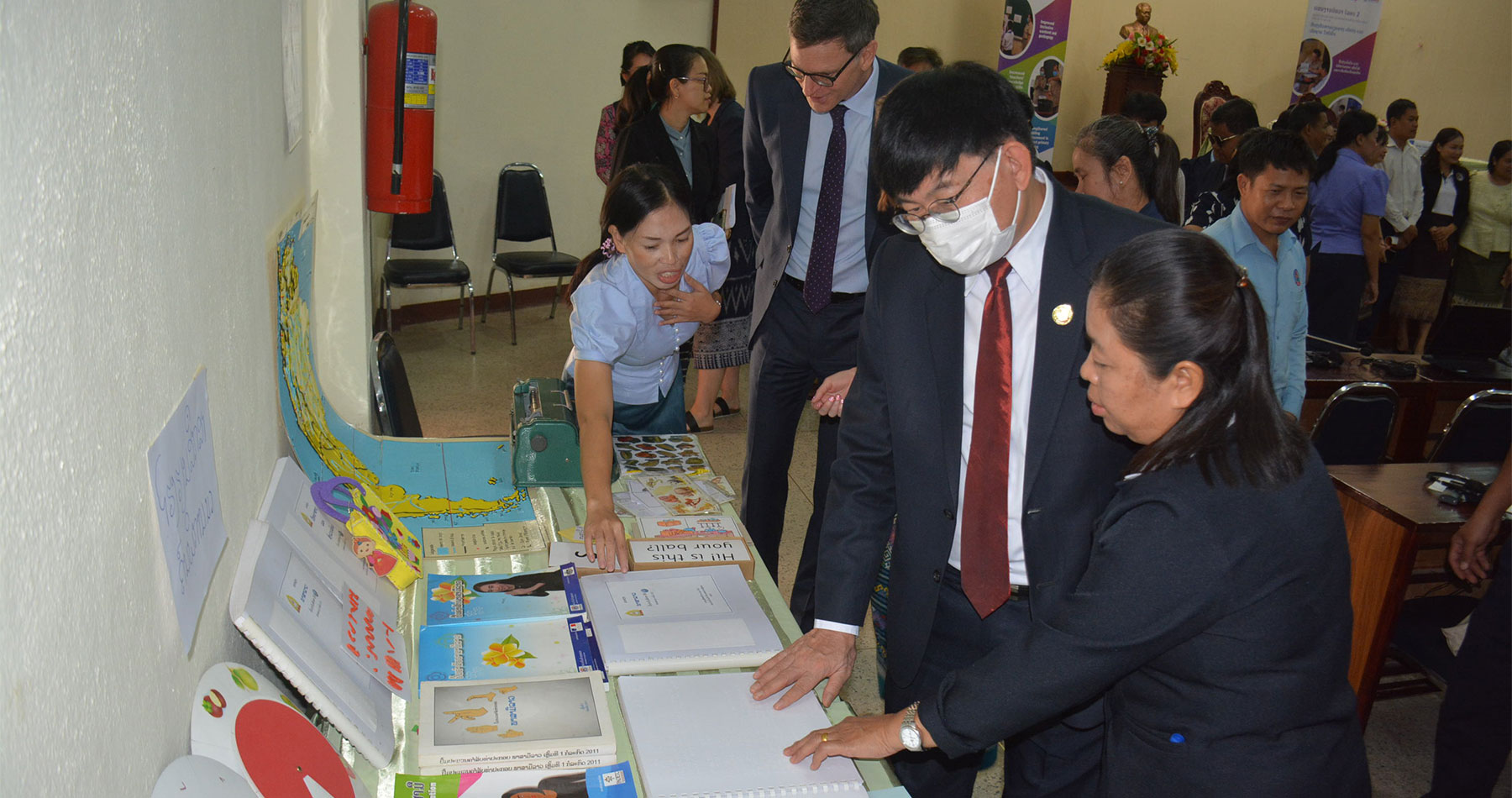
Special school introduced the braille curriculum to the Minister of Education and Sports
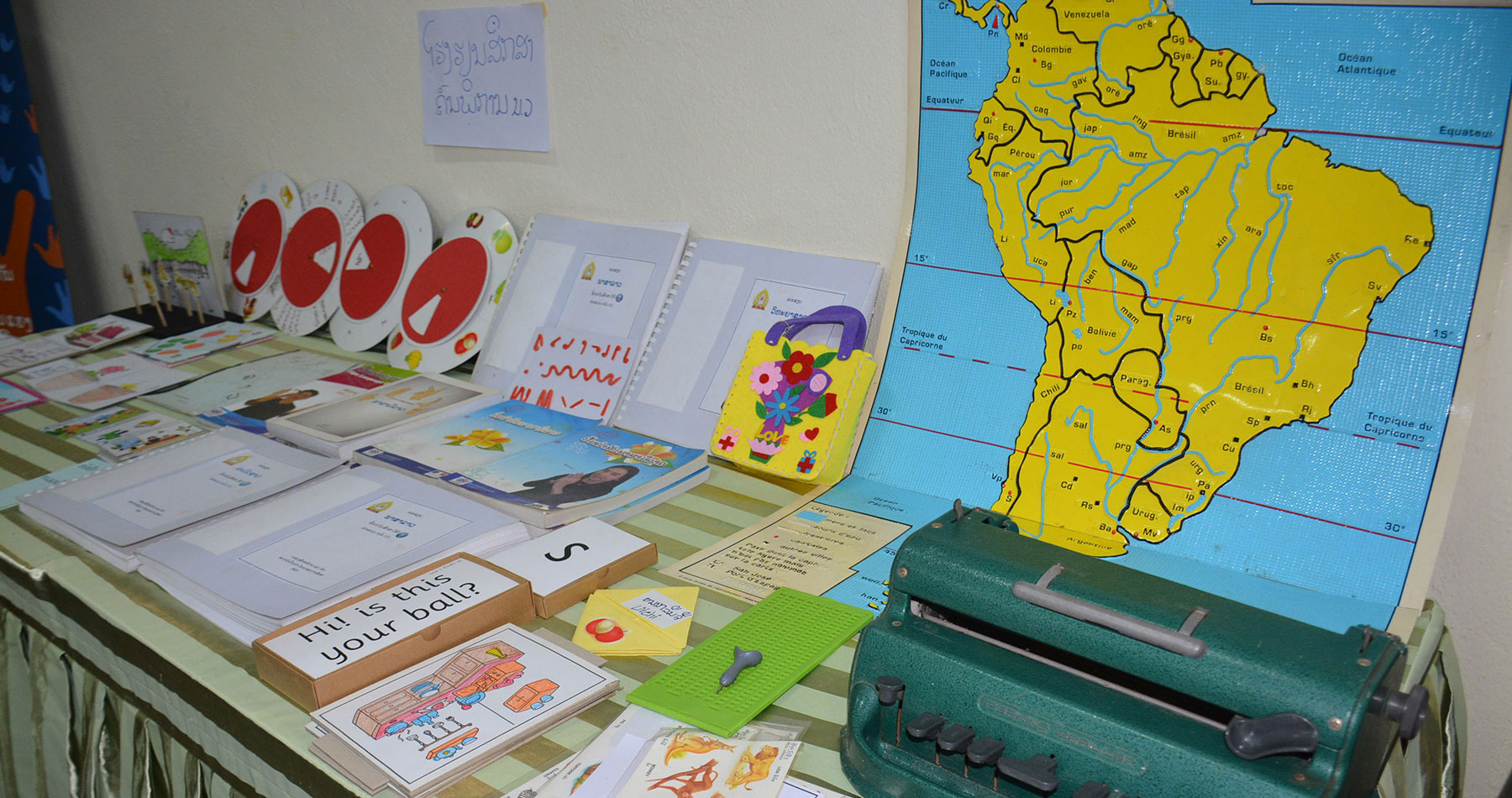
Example of teaching materials for sign language and braille curriculum
Dr. Phout Simmalavong said “Everyone, staff and teachers play a vital role in promoting the concept of “No one left behind”. Our job is to ensure that policy is put into practice and that teachers receive adequate support to meet the needs of all students, regardless of gender, ethnicity, or ability. This two-day workshop provides not only the skills but also a network for teachers to gain support from other sectors.”
H.E. Paul Kelly said “Disability is one of the most serious barriers to education across the globe. Inclusive education is a powerful force for social change. We believe effective Principals and teachers and community involvement is key to ensure lessons and schools are inclusive for all children, no matter their ability, gender or ethnicity.”
Every class group is different and during their career, teachers will encounter a wide diversity of learner abilities, backgrounds, and aspirations. Being a good teacher is about adapting teaching styles to meet these diverse needs. Disability is just one aspect of this. So, teachers need to understand how to adapt their teaching to ensure all students can fully participate, and feel welcome, in class.
H.E. Dr Phout concluded: “I am looking forward to more inclusive classrooms, where all students, especially those experiencing disadvantage, have the opportunity to realise their potential through access to quality education, delivered by skilled teachers and to ensure safety for all child at schools”.
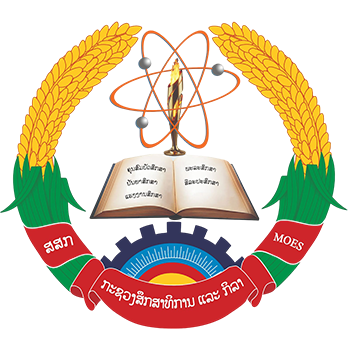


 ພາສາລາວ
ພາສາລາວ